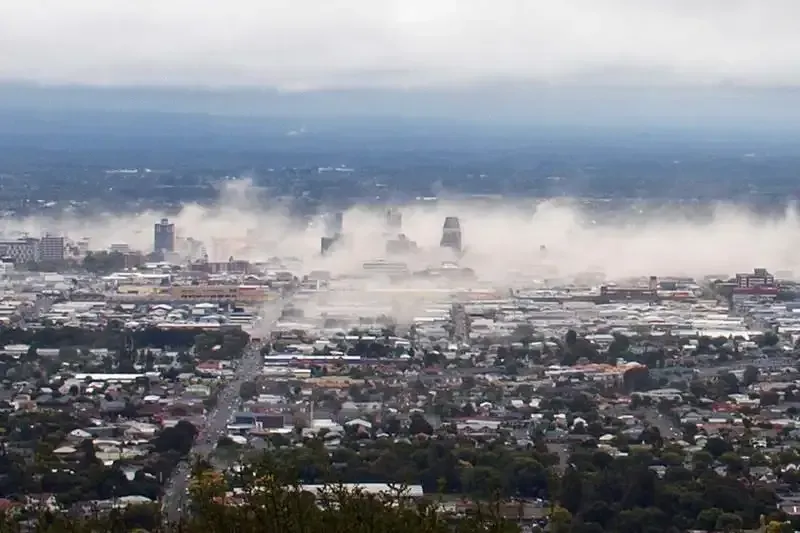Creating a Purpose That Transcends

Looking back and reflecting on a major event that impacted my community around six years ago, I remembered a conversation I had by accident with the CEO of one of the largest infrastructure building companies in Australasia about motivation and purpose. This was in the months after the 22 February 2011 earthquake in Christchurch, New Zealand. This particular was about how to create a sense of purpose that transcends politics, team dynamics, leadership ability and individual circumstance. How did this conversation arise? After 10 months of major earthquakes and many thousands of aftershocks disrupting communications, business, life routines, the very viability of vast areas of suburban residential homes and their attached infrastructure in Christchurch, New Zealand, the long hours undertaken by workers to rebuild the city had taken their toll.
This toll was typified by decreases in personal patience and tolerance, and increased fatigue levels to a degree rarely previously, if ever, experienced by the workforce – both those local to Christchurch and those who had arrived to help and support their colleagues ‘ down South’. What we had not seen, however, was the associated mistakes – accidents and injuries – we typically would expect from cumulative long hours, few opportunities (or permission from ourselves) to take a break, and ongoing urgent timeframes on minor and major projects. What had maintained the high level of performance with very few accidents amidst such circumstances, of which there is likely to be little respite? Quite simply the answer was motivation; motivation generated by a sense of purpose that transcended the ordinary.
While at the time it remained to be seen if such productivity could be maintained, as there is an inevitable cut-off point by which neurology and biology overcome determination and commitment, what was it that created that sense of purpose? If only we could define it and recreate it we would not only be so much more productive but also happier in what we do. After all, one of the key causes of work satisfaction is a clear sense of meaningfulness between what we are doing and a desired outcome (‘paperwork’ may well be valuable but it lacks the sense of purpose one gets when repairing a sewer line that allows a hundred households to flush). How could we manufacture the same sense of commitment we saw among many of those rebuilding Christchurch in ordinary and everyday activities? Was it even possible to do that? It may not be long-term but it might be temporarily. We have seen amazing examples through history of long-term commitment to a cause, fortunately and unfortunately much of this during wartime, and in particular that of total war where the civilian population is exposed to the risks and dangers of conflict. This, in some way, might explain the sense of purpose existing in Christchurch at that time – everyone was affected, the entire community, and there was no escape from it.
What, then, are the ingredients of a purpose that transcends? Using the example of Christchurch post 4 September 2010 (7.1 magnitude) and 22 February 2011 (6.3 magnitude) the following elements likely created a purpose that transcended the mundane.
1. A clear outcome: A clearly defined endpoint by which we can determine success and/or failure. Knowing how our particular role, skills and efforts are contributing to the larger project we are working on and being able to look back and see, tangibly, what has been achieved by our effort. In other words, the chance to look back and say ‘I did that, and it made this difference.’
2. A clear link: Knowing how and in what way we contribute to the bigger picture. How does this task or project matter and fit into the overall strategic direction of what we are undertaking? It is not just the completion of this task that is important but the opportunity to get on to the next one as part of a greater cause.
3. Recognition: Spontaneously or planned, timely feedback on work underway or completed that reinforces the appreciation of those who see, use and witness what is being undertaken. This might be internally generated through company initiated awards and acknowledgement or informal team celebrations during- and post-completion. This might be externally generated through public thanks and even spontaneous acts of kindness by members of the public. Whatever the origin the recognition reinforces that fact that this is not a business as usual time.
4. A catalyst event: Few leaders can by force of personality, time in history, or circumstance alone transcend individual priorities and dominate thinking across the broader body politic. Martin Luther King, Winston Churchill and Robert F Kennedy were great orators and, in their own way, great men. But their words would have not had the impact they did outside of the environmental circumstances of their time. A catalyst event can be used to generate a need across the broader population, inside a company or outside of it, that starkly re-prioritises what is important and not important in daily life. In other words across a critical mass of the population the ‘big picture’ view changes for the majority of people at the same time.
Effective leaders that motivate through a purpose that transcends understand and find an event and/or cause that emotionally engages and is personally relevant to a critical mass of their employees in such a way that it shifts thinking. Without a shift in thinking, behaviour and hence productivity change, will not follow. Such a cause must dominate conversation, inspire hope, create a sense of individual contribution to a greater good, and generates determination to overcome. Without a clear and present danger, of some form, there is no ability to overcome individual priorities and reluctance to self-sacrifice time and energy to a cause. Whilst a natural disaster may generate such a danger automatically the challenge for today’s leaders who wish to inspire greater productivity and satisfaction (they both go hand in hand) is how to communicate the same vision and need greater than the individual to which the individual wishes to be part of.
JOHNATHAN BLACK
Chartered Organisational Psychologist & Founding Director of Farsight Limited
Jonathan is a registered psychologist with the New Zealand Psychologists Board and a Chartered member of the Institute of Organisational Psychology with the New Zealand Psychological Society. Specialising in conflict, communication, safety, performance and leadership he provides a broad range of services in these and other fields and his advice has been sought across Australasia and Europe.

